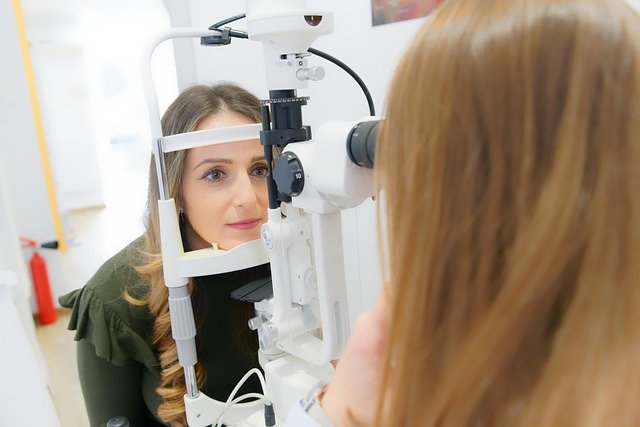How Genetic Counseling Works and When It’s Used
Genetic counseling is a vital aspect of healthcare that helps individuals understand their genetic risks, make informed decisions, and navigate complex genetic information. This article delves into the process of genetic counseling, highlighting when it is used, how it benefits individuals and families, and the role of genetic counselors in providing support and guidance.

What Is Genetic Counseling and Who Provides It?
Genetic counseling is a communication process that aims to help individuals, couples, and families understand and adapt to the medical and psychological implications of genetic contributions to disease. A genetic counselor is a healthcare professional with specialized graduate training in medical genetics and counseling who guides this process. These professionals typically hold a master’s degree in genetic counseling and must pass a certification examination administered by the American Board of Genetic Counseling or similar organizations in other countries.
Genetic counselors work in various settings including hospitals, private genetic clinics, prenatal diagnostic centers, and specialty medical practices. They often collaborate with medical geneticists, obstetricians, oncologists, neurologists, and other healthcare providers to deliver comprehensive care to patients. Their expertise lies not only in understanding complex genetic information but also in communicating this information in an understandable and supportive manner.
When Is Genetic Counseling Typically Recommended?
Genetic counseling is recommended in numerous scenarios where genetic factors might influence healthcare decisions. Some common situations include:
-
Prenatal counseling for couples planning a pregnancy or already expecting, especially if they have a family history of genetic disorders, are of advanced maternal age, or have abnormal prenatal screening results.
-
Pediatric genetic counseling for children with developmental delays, birth defects, or suspected genetic conditions.
-
Cancer genetic counseling for individuals with a personal or family history of cancer, particularly early-onset cancer or multiple cases within a family.
-
Adult-onset disease counseling for conditions like Huntington’s disease, hereditary heart conditions, or familial Alzheimer’s disease.
-
Pre-symptomatic testing for individuals at risk of developing late-onset genetic disorders.
-
Pharmacogenetic counseling to help predict how an individual might respond to certain medications based on their genetic makeup.
The timing of genetic counseling is crucial, as it often precedes important medical decisions and can significantly influence treatment paths or family planning choices.
The Genetic Risk Assessment Process
The genetic risk assessment is a cornerstone of genetic counseling that helps determine the likelihood of developing or passing on a genetic condition. This process typically begins with a detailed collection of the patient’s personal and family medical history, often visualized through a pedigree (family tree) that highlights patterns of inheritance across generations.
The assessment may involve various forms of genetic testing, including:
-
Diagnostic testing to confirm or rule out a specific genetic condition
-
Predictive testing to identify gene mutations associated with disorders that appear later in life
-
Carrier testing to identify individuals who carry a gene mutation for a disorder that could be passed to children
-
Prenatal testing to detect changes in a fetus’s genes or chromosomes
-
Preimplantation testing to identify genetic changes in embryos created through assisted reproductive technologies
After gathering this genetic information, the counselor evaluates the data to calculate risk probabilities. This assessment goes beyond simple statistics to consider the specific genetic variants identified, their penetrance (likelihood of causing disease), expressivity (severity of symptoms), and interactions with other genetic and environmental factors.
How Genetic Information Is Communicated to Patients
Communicating complex genetic information effectively is perhaps the most crucial skill of a genetic counselor. They must translate technical scientific concepts into understandable terms while ensuring patients grasp the implications for themselves and their families.
Genetic counselors employ various tools and strategies to facilitate comprehension, including visual aids, analogies, and written materials. They practice non-directive counseling, providing information without steering patients toward particular decisions. This approach respects patient autonomy and acknowledges that genetic information intersects with personal values, religious beliefs, and individual circumstances.
The communication process also includes discussion of:
-
The nature of the genetic condition
-
Inheritance patterns and recurrence risks
-
Available testing options with their benefits, limitations, and potential risks
-
Management and treatment options
-
Research opportunities and support resources
-
Psychological implications of test results
Making Healthcare Decisions Based on Genetic Counseling
The ultimate goal of genetic counseling is to empower individuals to make informed healthcare decisions aligned with their values and circumstances. These decisions might include:
-
Whether to proceed with genetic testing
-
Family planning choices, such as preimplantation genetic diagnosis, prenatal testing, egg or sperm donation, or adoption
-
Preventive surgeries for high-risk individuals (e.g., mastectomy for BRCA mutation carriers)
-
Enhanced screening protocols for early disease detection
-
Participation in clinical trials for novel treatments
-
Lifestyle modifications to mitigate genetic risks
The decision-making process is rarely straightforward and often involves weighing complex trade-offs. Genetic counselors help patients navigate these choices by clarifying options, facilitating family discussions, and providing emotional support throughout the journey. They also connect patients with additional resources such as support groups, financial assistance programs, and specialized healthcare providers.
The Future of Genetic Counseling and Gene Therapy
As gene therapy treatments advance, genetic counseling is evolving to address new ethical, social, and clinical considerations. Gene therapy—the introduction, removal, or change in genetic material to treat or prevent disease—represents a revolutionary approach to treating genetic disorders.
Genetic counselors now increasingly help patients understand:
-
Eligibility criteria for gene therapy clinical trials
-
Potential benefits and risks of emerging gene therapies
-
Long-term implications of genetic modifications
-
Insurance coverage and financial considerations
-
Alternative treatment options
The integration of genetic counseling with gene therapy treatment ensures patients can make well-informed decisions about cutting-edge treatments that may fundamentally alter their genetic makeup. As personalized medicine continues to advance, the role of genetic counselors in translating complex genomic information into actionable healthcare decisions will only grow in importance.
This article is for informational purposes only and should not be considered medical advice. Please consult a qualified healthcare professional for personalized guidance and treatment.




